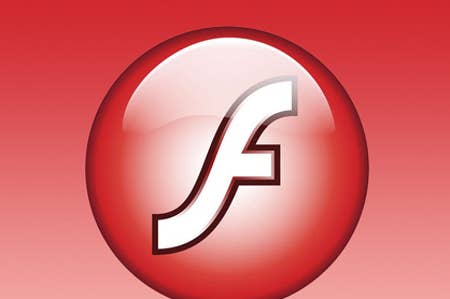Flash in the Pan: Examining Adobe's 9% Games Cut
Is Adobe's latest announcement another PR disaster in an already fragile ecosystem?
Twitter has been aflame this week reacting to Adobe's bombshell that it would soon be taking nine per cent of revenues from games using Flash Player's premium features. This new policy to turn the ubiquity of Flash into a direct revenue stream would only be enacted upon games released after August 1 this year, and only for those whose revenue is greater than $50,000.
Adobe's development of Flash is certainly a costly endeavour, and the company claimed that this move would directly improve investment in the technology, as well as encouraging, "the kind of innovation and experimentation that often helps to spark inspired and inventive games".
The Flash community is so used to being messed around by Adobe that it's very easy to jump on every bit of news from them as something negative
Mark Burvill, Antifuzz
It's not entirely clear to all developers, however, how a price hike from zero to nine per cent of revenues would encourage innovation, and it was widely decried as the latest Adobe PR pratfall.
Mark Burvill, of Flash developer Antifuzz, however, says it would unwise to judge this move hastily.
"The Flash community is so used to being messed around by Adobe that it's very easy to jump on every bit of news from them as something negative without realistically considering the details," he says. "[This new payment model] only affects the combined usage of two new ultra-high-end features of the desktop Flash player, and only on revenue over and above the first $50K. So it's really only going to affect the Zyngas and Rovios of this world who go on to develop the next generation of console-quality games for the web."
It's also true, as Burvill points out, that the nine per cent is a much smaller cut than the 30 per cent Apple bites out of every App Store payment. But the two charges are not directly comparable, says Richard Davey, technical director of Aardman Digital.
"On the surface nine per cent seems like a bargain compared to the 30 per cent Apple commands," he says. "But in return for that lofty percentage Apple provide you with a global payment solution, an audience of millions, a storefront presence and the potential for featured promotions. Adobe want nine per cent for the use of a runtime.
"A lot of devs feel this will only impact those big companies wanting to use, say, Unreal Engine. But in those cases the nine per cent will be on-top of the percentage Epic already charge. It's also easy to say, 'well I don't need to use those two features anyway', but some of the upcoming premium features sound really useful," he adds.
"Proper persistent local storage could genuinely benefit a lot of games, reducing subsequent load times dramatically, and local desktop shortcuts sound great, too. Those are the sorts of things that I could see really appealing to the likes of Zynga. But when you're at Zynga-level income, nine per cent becomes a phenomenal amount. I'm sure they will negotiate their own special deals, but at the end of the day it's still lost revenue where it wasn't before. All it can really do is expedite their investment into alternative technology."
But is taxing the likes of Rovio and Zynga only fair? As Burvill asks, "Considering that those developers probably wouldn't even be using any Adobe-purchased tools to actually build their games, why shouldn't they be making a contribution to the platform that their games are running on?"
He's also sceptical that this move will really discourage the use of the platform by the sorts of companies who are required to stump up that nine per cent: "If the big developers can see that Adobe is actively making money out of high-end gaming on their platform, then it might even make that platform appear more attractive to them. After all, a platform that makes money for Adobe is one they will continue to improve and invest in."
New terms may damage what is already an extremely fragile ecosystem. And honestly I don't know how much more it can take
Richard Davey, Aardman Digital
Both Burvill and Davey agree on one thing, however: that the major hurdle to this policy is how Adobe will police it.
"If you want to use the premium features then your SWF [Adobe's Flash file format] will need to be licensed, regardless if it's going to directly earn any money or not," explains Davey. "We fully expect this to take the form of a digital certificate, creating a signed SWF."
This would seem to undermine Adobe's suggestion that the new pricing would encourage experimentation, as Burvill points out, "even developers who are just mucking around with the premium APIs and don't ever hope to make £50K will still need to go through this licensing process."
"And who knows what terms and conditions you'll have to agree to in order to sign your SWF," says Davey. "If there is any clause along the lines of 'Adobe have the right to audit your accounts' - well, that will rightly put the fear of God into our clients. Damaging what is already an extremely fragile ecosystem. And honestly I don't know how much more it can take."
Have Adobe pulled off another PR-disaster? "Yes they have," concludes Burvill. "These features have been available in pre-release for some time now, with no official announcement made that they may eventually end up charging for them. A lot of people feel shafted again, and it makes another great anti-Flash headline. Is this decision a bad thing for Flash as a high-end gaming platform in the long run? No probably not. Possibly the opposite. Is it going to affect 99 per cent of Flash developers? No not at all."

